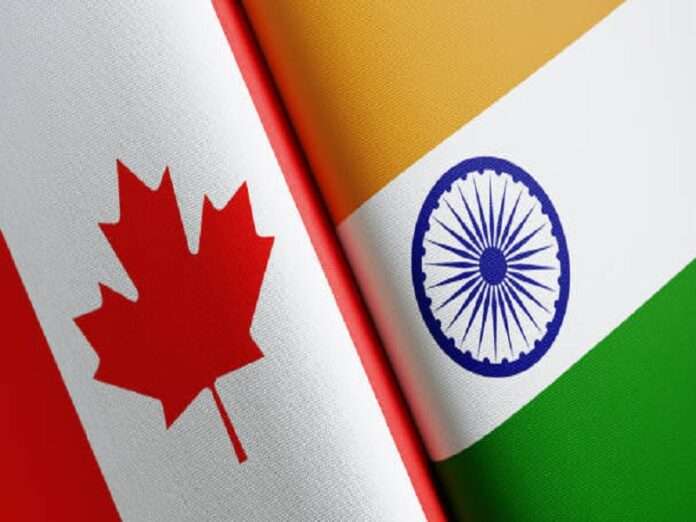Canada accused Indian agents on Monday of assassinating dual citizen Hardeep Singh Nijjar in June, expelled one of its diplomats in response, and vowed to hold Delhi accountable for this alleged crime. India denied the accusation and expelled a top Canadian diplomat in kind. Despite how the media is framing everything, the Indian-Canadian dispute is about a lot more than the killing of one man. In fact, it arguably embodies the clash of polar opposite worldviews represented by these two countries.
From Canada’s perspective, Nijjar was a peaceful activist who flexed his UN-enshrined right to seek the self-determination of Sikhs from India. Ottawa refused to extradite him to Indian Punjab per its police’s request on terrorism-related charges because it considered them to be political. Canada knew that this and its refusal to comply with India’s requests to protect diplomatic property in that country from attacks by associated separatist groups would endanger bilateral ties but still held firm on its stance.
The Sikh diaspora is influential in segments of Canadian politics, which partially explains this position, as does Prime Minister Trudeau’s efforts to present himself as the poster boy of the liberal world order. The first is self-explanatory while the second concerns the view that human rights are more important than state’s rights or national security. For that reason, Canada is willing to suffer the political, economic, and reputational consequences of hosting Sikh separatists, including those accused of terrorism.
India’s perspective is altogether different. It believes that Nijjar financed and organized terrorist attacks in Punjab, which represented a blatant abuse of his UN-enshrined right to peacefully support self-determination through purely political means. Canada’s refusal to extradite him was therefore considered unfriendly, and suspicion swirled that violent extremists either successfully “hacked” liberal democracy to hijack Ottawa’s foreign policy or that Ottawa actually wants to “Balkanize” India.
In any case, India began to regard Canada as complicit in the threats that groups like Nijjar’s pose to its national security by dint of continuing to host him and others who’ve been accused of the same. From their view, human rights have been exploited by them as a cover to justify terrorism either through the connivance of the Canadian government or it turning a blind eye to this for domestic political reasons. The lives of Punjab’s over 25 million people therefore remain in danger so long as these threats persist.
The aforesaid insight into India’s worldview shouldn’t be misinterpreted as suggesting that its agents are guilty of assassinating Nijjar, but simply to emphasize the security-centric way in which it conceptualizes this issue, which is the polar opposite of Canada’s obsession with the human rights dimension thereof. Both countries feel so strongly about their respective views that they’re willing to accept the consequences to bilateral relations and their broader implications brought about by this dispute.
As it continues spiraling, observers will be able to more easily discern their diametrically opposed worldviews, especially since other countries are expected to take sides even if only informally. Most Western ones will predictably back Canada out of solidarity with their de facto New Cold War bloc while most non-Western ones will likely back India since it’s a fellow developing country. Nevertheless, most third parties aren’t expected to be too outspoken either due to the sensitivities of this dispute.
The West doesn’t want to risk ruining its mutually beneficial ties with India while non-Western countries don’t want their defense of India to be twisted by the media to discredit them. From the first’s perspective, India helps them balance the rise of their Chinese systemic rival over the long term, while the second fear being defamed by some media forces for allegedly supporting foreign assassinations. With that in mind, Western and non-Western support of Canada and India respectively will be mild.
Exceptions might nevertheless exist such as if some comparatively minor Western country which doesn’t trade all that much with India gambles that it has more to gain in the realm of Western public perception by enthusiastically endorsing Trudeau’s accusation. Likewise, Russia has been accused of assassinating figures abroad that its government arguably considered to be national security threats so it knows what its Indian strategic partner is feeling right now and might thus defend it with gusto out of solidarity.
Returning back to the incident at the center of the Indian-Canadian dispute, while it’s understandable that people are passionately debating who might have really killed Nijjar, they shouldn’t lose sight of the fact that this represents the clash of polar opposite worldviews. Canada’s is focused on human rights at the expense of India’s national security, while India’s is security-centric at what Ottawa claims is the expense of people’s human rights. Each represents the general Western and non-Western worldview.
This issue is therefore much larger than the killing of one man since it risks further polarizing the West and the non-West in the New Cold War. That’ll in turn make it more difficult for India to continue functioning as the bridge between them these two de facto blocs. Thus, Trudeau’s efforts to disrupt its balancing act by making Nijjar’s killing a global media sensation instead of addressing it behind closed doors per diplomatic protocol could consequently harm the Global South’s interests as a whole.







